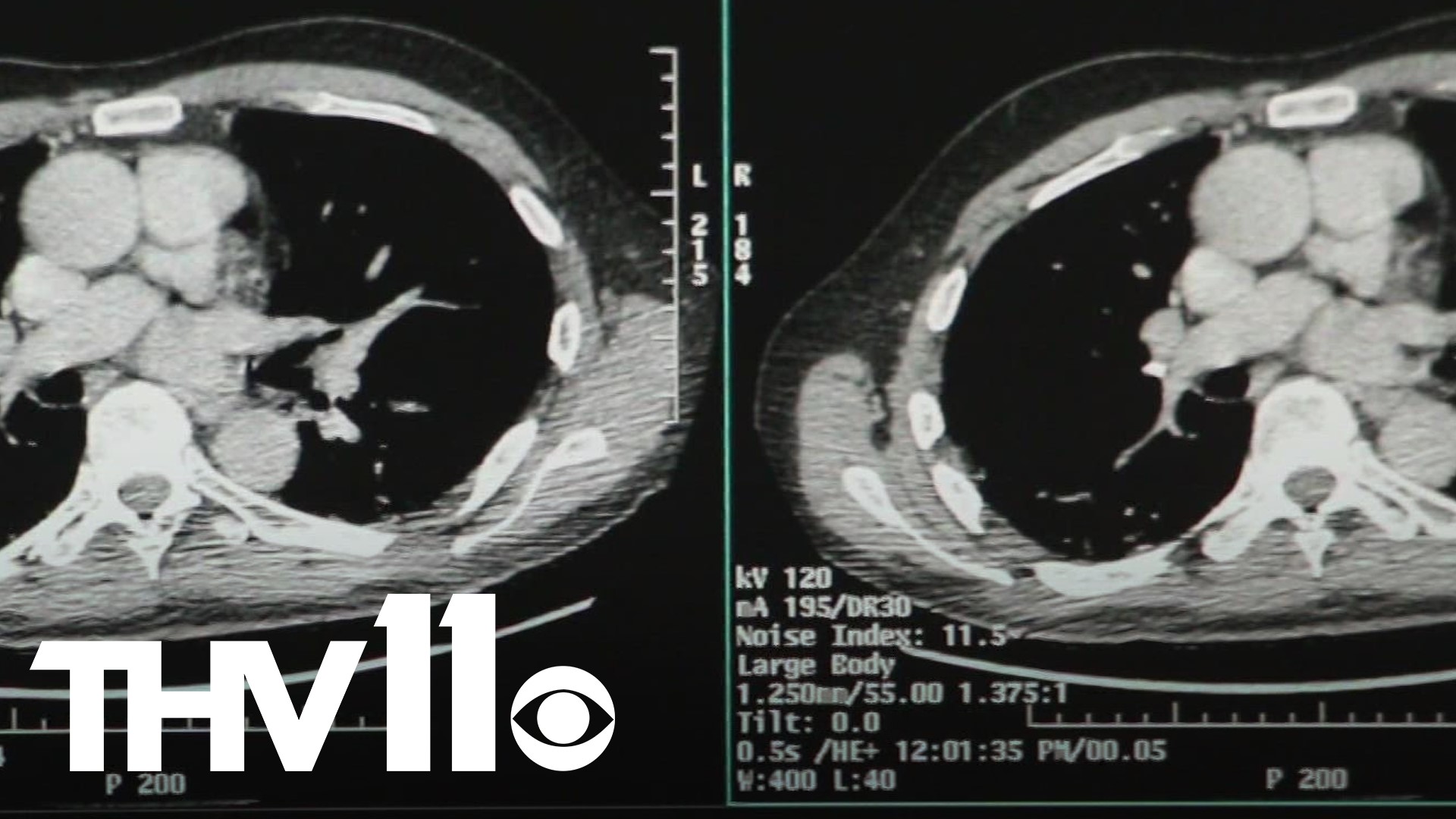LITTLE ROCK, Ark. — A factory shutdown in China is causing issues in hospitals half a world away here in Arkansas.
This nationwide shortage is now putting certain medical tests on hold.
It's called contrast dye. Basically, it's what hospitals use for CT scans to better detect things like heart problems or cancer.
While hospitals here in Arkansas are feeling the impact of this shortage, they're figuring out ways to adjust.
Scanning the radiology room at CHI St. Vincent, it's hard to miss the big white machine and true to its size, Chief Medical Officer Dr. Gerry Jones said it carries a lot of weight in the hospital.
"Diagnostic studies, called CAT scans or computerized tomography, really give us a very good picture of what's going on inside the body," he said.
Dr. Jones said sometimes doctors need that picture to be even more detailed and that's where contrast dye comes into play, but right now, it's hard to come by.
"The shortage of this IV contrast is requiring us to be more thoughtful in how we use a resource that before seemed unlimited and now we know is indeed limited," he said.
Being more thoughtful at the hospital, according to Dr. Jones, means prioritizing exams that are most important. That includes trauma patients, using different tests like MRI or ultrasounds, and if it's just a routine exam, it may get postponed.
Over at UAMS, Chief Clinical Officer Dr. Michelle Krause, said it's the same story.
"Things that are just a more routine or surveillance, we're trying to kind of spread them out of the schedule, so that we can take care of things that are more urgently needed," she said.
Over the past ten days, Dr. Krause said they've really noticed the shortages impact on their day-to-day operations.
She believed the temporary shutdown reduced their supply by 75 to 80%.
"We're just making sure that we're smart about who we're giving it to, probably for the next handful of weeks," Dr. Krause said.
If the pandemic taught these hospitals anything though, it's that they'll get through this.
"It is the world that we live in now," Dr. Jones said.
"We will overcome, you know what I mean, we've learned to be very resilient, so we'll be fine," Dr. Krause said.
The manufacturing facility that started this whole shortage is back up and running.
Both Dr. Jones and Dr. Krause believe the supply could be back to normal by the end of June.

